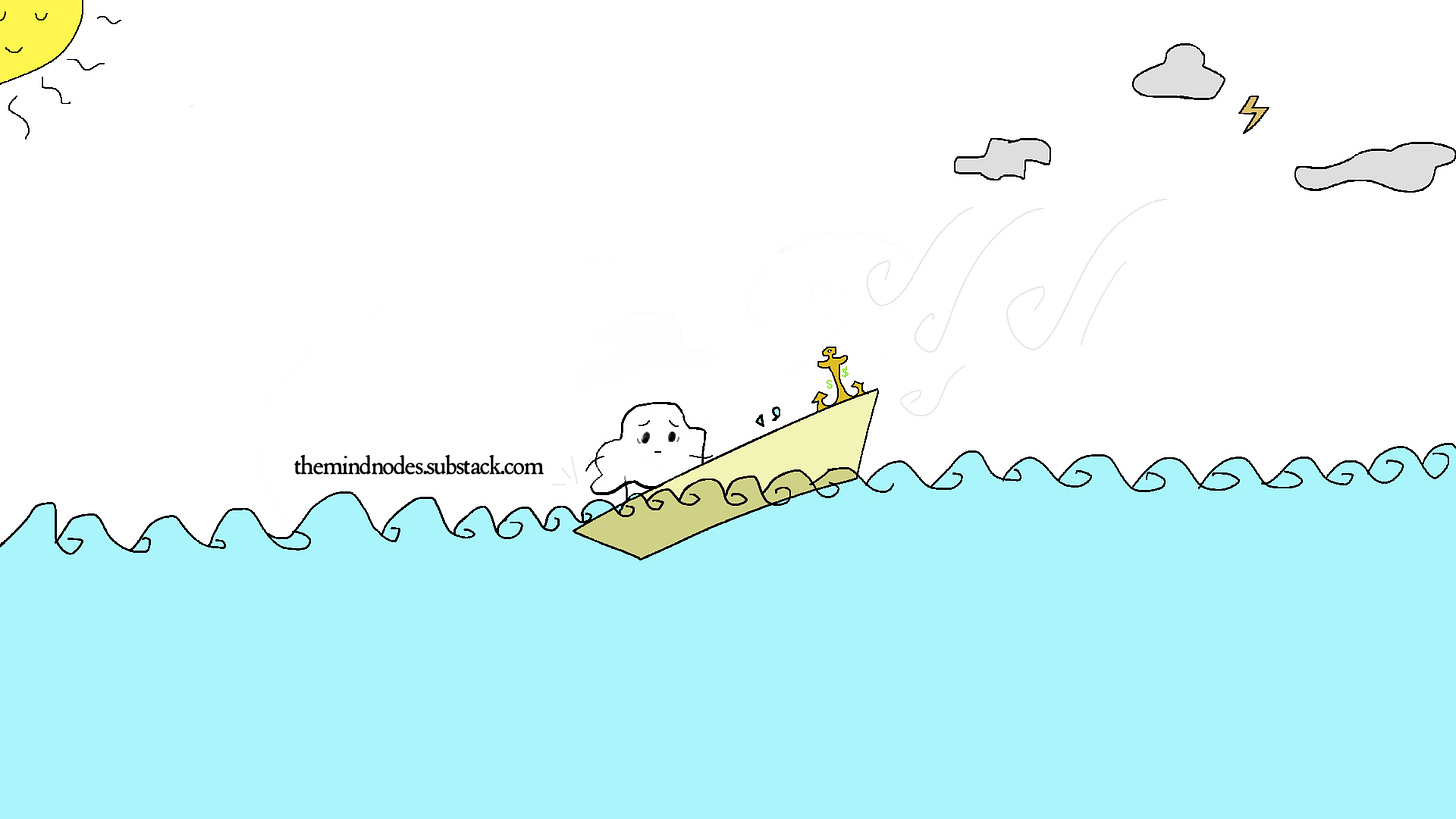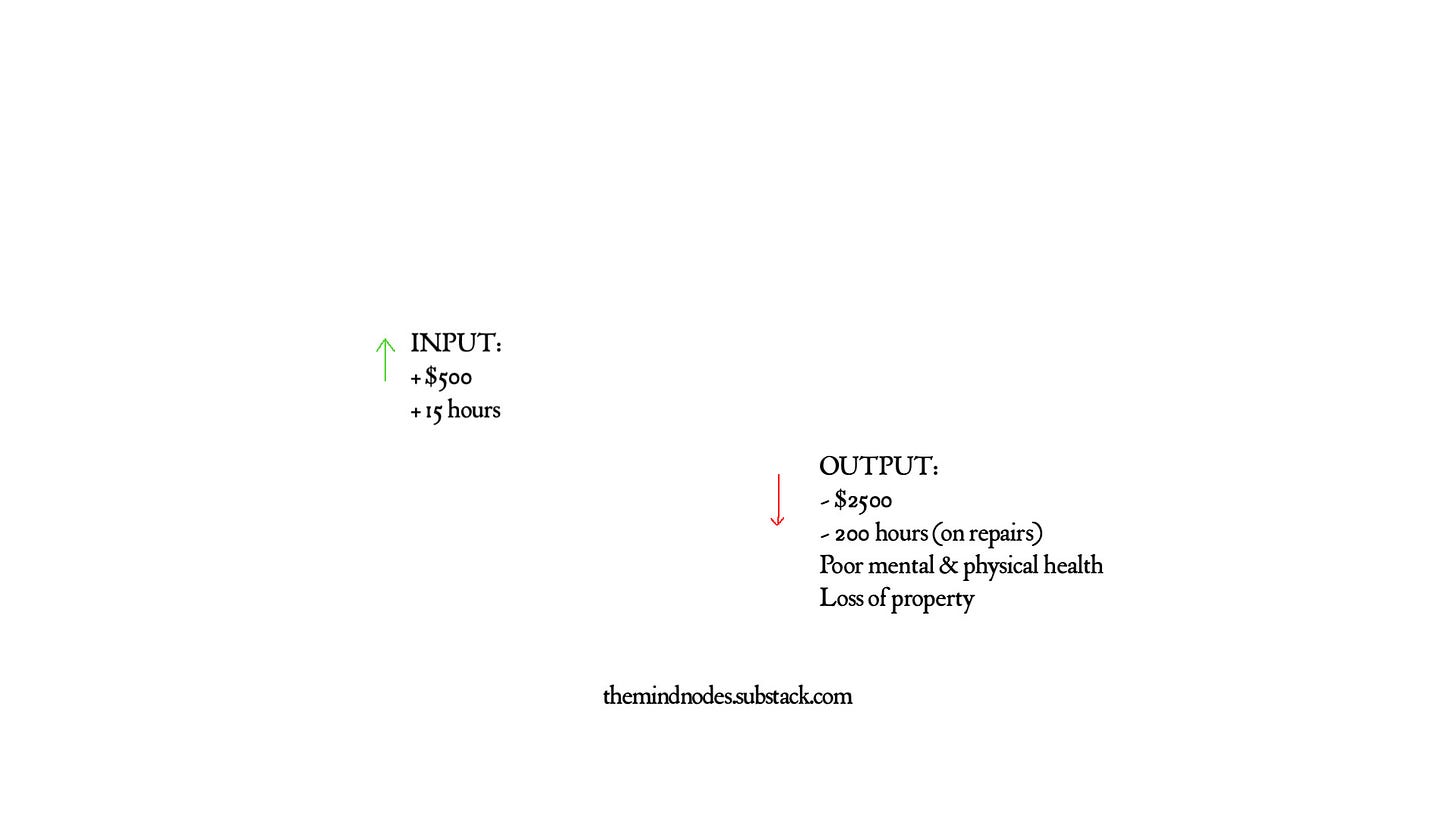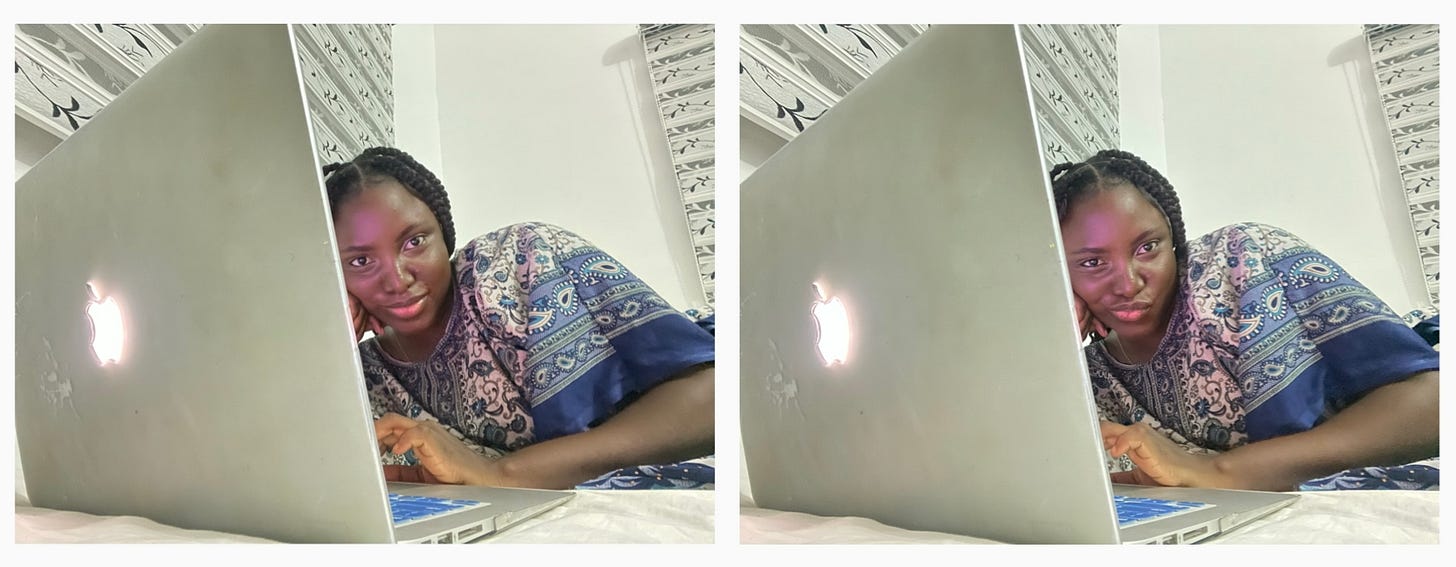“Because, how dare you?” ~ a semi-recent journal entry.
Late last year, I was faced with an interesting but scary choice.
Stay or go.
Oversimplification at its finest but I had gotten to a point where I was once again confronted with the question that had lingered for a few years.
Yet it wasn’t that I was truly conflicted. It was that I’d spent so much time and money in the pursuit of this singular thing. (More details about this later in the post).
And then I came across the sunk cost fallacy.
What is the sunk cost fallacy?
It’s when we continue in a situation or with a decision for the major reason that we’ve already put in the time, effort, money, or all three, even when the said situation no longer serves us. Or its costs begin to outweigh its benefits.
At this point, it becomes a fallacy (defined as a failure in reasoning which renders an argument invalid).
But while this term is ideally useful in economics, it’s easy to see how it can apply to our everyday lives — relationships, career, a book that starts to suck quarter-way through.
For example, in this oldie-but-goldie article, it was noted that customers who paid more for a theatre series subscription attended more plays, even when they didn’t want to.
And why not?
This is absolutely reasonable. Resources, as we know, are limited. Why shouldn’t we honour our sunk costs? This rationale helps us to prevent wastage and stick around long enough to perhaps build something worthwhile.
Well, until it doesn’t work anymore.
Why sunk cost sucks
While there’s value in sticking through a decision, especially after a ton of input, there’s something to be said for knowing when to let go. This isn’t about quitting any- and everything halfway through, without much thought. Important to note is the caveat, cost now outweighs benefits.
It’s why Br (in the first sketch) doesn’t let go of the 24K gold anchor in a sinking ship just because it had cost a fortune.
Delusion, in simplified terms and as per its standard DSM definition, is holding on to a belief despite evidence to the contrary. When presented with new evidence on how its future consequences will most likely play out, it feels almost delusional to continue to insist on those past decisions.
For you (or someone you know), it could be a relationship that should have ended a long time ago. For me (or someone else), it’s ignoring a repressed desire to explore an unconventional career path, after investing a lot into the one.
“Because how dare you “waste” all that time and knowledge and effort?”
But while it might not seem like such a huge deal, could you imagine this on a larger scale? What if a federal government (or two) invest almost $100million into an aircraft project, for example, only to realise that it was too big a financial risk? That even the estimated gains could never offset the already acquired bill.
What if they simply carried on because “it was too late now”?
What if those funds could have been pumped into something else instead — better healthcare, education, quality of life?
By the way, this actually did happen to the British and French governments and has been dubbed the Concorde Fallacy. Alongside other slightly similar cases in other governments.
All of a sudden, it makes sense to place the present and future implications of a decision over the past input that is already irrecoverable. Why fixate on the unchangeable for the salvageable, especially when it involves the general mass?
But isn’t it fellow humans like you and me, with shared cognitive biases, that make up “The Government”?
Cutting one’s losses after investing 5 years (or $5000) into a thing is hard. But isn’t waiting for another additional 15 years to still make that same decision even harder?
Although let’s face it, that’s easier said than done.
So what does one do?
Where do we go from here?
While I haven’t fully made my own decision yet, I found these frameworks/strategies interesting to consider:
1. Awareness: This is the first step when it comes to cognitive biases. To solve a problem, we must first identify it for what it is. And if you’ve read up to this point, then you’re good.
“Once you start basing goals on an amount of returns, you are once again making decisions based on what you've spent in the past.” — Business Insider
2. Assessment: Stepping back to reflect is underrated. Asking the right questions like —
What factors did I consider while making those past decisions and how are they working for me now?
Is this still true to the original vision?
What has changed?
Can it be salvaged?
What is the real basis of my current stance?
It also helps to seek advice from trusted people who are not as emotionally invested as we are. This helps us focus on the facts as they’re more likely to objectively weigh the outcomes.
💡Read here: 3 Mental Models for Better Decision Making
3. Action: We can get stuck in the procrastination loop even after the first two steps. Pulling the plug is difficult but remember that it’s also not the only option after the first two steps.
But best believe if I paid for an over-priced movie ticket and 1 hour in, I realise it sucks, I’ll finish that movie o.
It’s funny. We often think we’re largely logical decision-makers but perhaps we’re influenced by emotions a lot more than we’d like to admit. Because at the end of the day, no one wants to feel regretful or guilty.
Now to try to go take my advice.
🎉 Mildly, exciting news!
One year.
It’s exactly one year since I started this newsletter. Well, actually it’ll be by tomorrow (20th March 2022).
I’d like to say thank you for coming on this journey with me. Writing these essays has truly changed my life, in more ways than I can share right now.
And if you’re considering starting something, the second-best time is ✨now✨
Go ahead. Start.
Then iterate. Grow.
Rinse & repeat.






"Because how dare you " waste" all that time and knowledge and effort?" In just this sentence lies the reason why many keep pushing what they are supposed to let go. But thanks to you, I already know the steps to take to exit situations like this.
By the way, Happy 1 year anniversary. Cheers to many on the way🥂
Happy one year anniversary